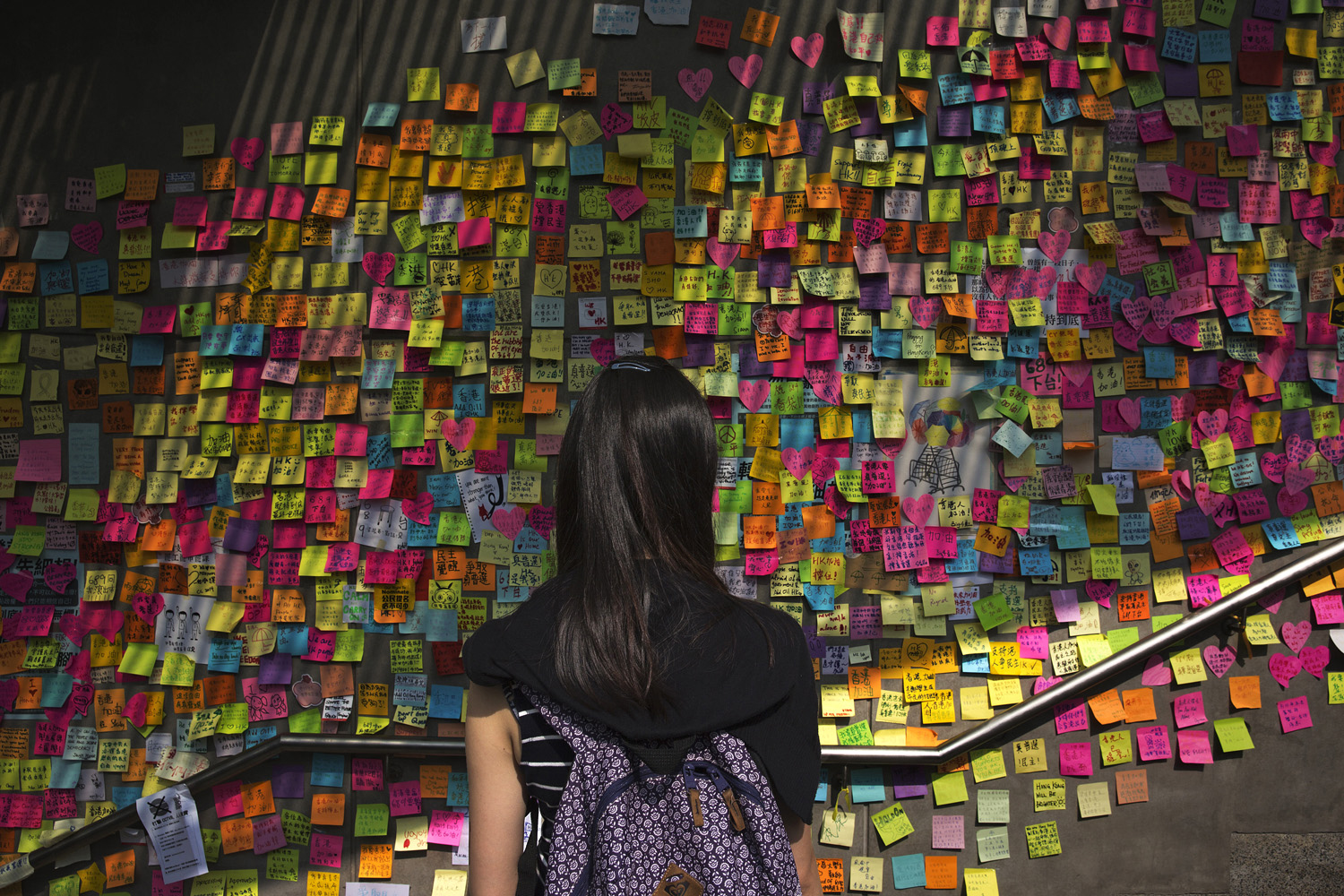
For the past two weeks, unprecedented pro-democracy street demonstrations have rocked Hong Kong, with protesters calling on China to stay out of the harbor’s internal politics. TIME contract photographer James Nachtwey documented the democratic movement, witnessing the protesters’ incredible resilience and organization. “The interconnectedness of the thousands of demonstrators has created a reform movement that is organic, seemingly without well-defined leadership, and behaving like a single organism,” he tells TIME. “It has organized itself spontaneously to provide every level of social needs. It embodies, with a highly developed sense of integrity, the core values of communalism and common cause. It is deeply non-violent, which makes it even stronger. Any nation which possesses people of such quality, capability and talent, would do well to embrace them and empower them, not crush them.”
They have been pepper-sprayed and tear-gassed by police, pushed and punched by their opponents, drenched by torrential rain. Still, they stay. Since Sept. 22, in a historic act of civil disobedience, pro-democracy demonstrators—the overwhelming majority of them students—have occupied key financial and retail districts in one of the world’s great cities: Hong Kong. When their camps were attacked by thugs who the protesters say were backed by the state, more than 100,000 people rallied for peace. When the authorities set an Oct. 6 deadline for them to clear out, they held fast. Says 17-year-old Jennifer Wong, who is in high school: “I choose to stand up.”
The protesters are standing up for a say in government, starting with the election of Hong Kong’s chief executive (CE). Until now, the CE has been chosen by a 1,200-member electoral college made up largely of Hong Kong’s political and business elite. In 2017 the public will be allowed to vote for the CE, but the leadership in China, which has sovereignty over Hong Kong, has imposed conditions. Candidates must be vetted for “patriotism,” and only two or three can run. Officials say the new system represents progress; critics say it’s rigged to stifle dissent.
Young people are particularly concerned. Hong Kong is a rich city, but its wealth is concentrated in ever fewer hands. Big business, particularly the city’s real estate sector, has inordinate influence over government policy. High property prices prevent many people from owning homes. Wages are stagnant. “We don’t see good prospects for our future,” says Katie Lo, 21, a university student.
That future would be brighter with democracy, Hong Kong’s youth believe, because it—at least in theory—would make the government more responsive to public needs. “People say
to me, ‘If you want to change the world, go to university, then work as a government administrator or a businessman,’” says Joshua Wong, a protest leader who turns 18 this month.
“No, to affect the world, you go to the streets.” Many citizens are tired of the disruptions to
their lives and want to reclaim those streets—a growing sentiment that officials may exploit to pressure the students in coming talks. Protesters are getting weary too. On the night of Oct. 7, only about 2,000 were at the main rally point, compared with the tens of thousands before. Still, Hong Kong has undergone a political awakening. Says Emily Lau, 62, a legislator and the head of Hong Kong’s Democratic Party: “Once people have been shown their power, they know how to use it again.”
James Nachtwey is a TIME contract photographer, documenting wars, conflicts and critical social issues.
Emily Rauhala is Beijing Correspondent for TIME. With reporting by Elizabeth Barber, Hannah Beech and Nash Jenkins.
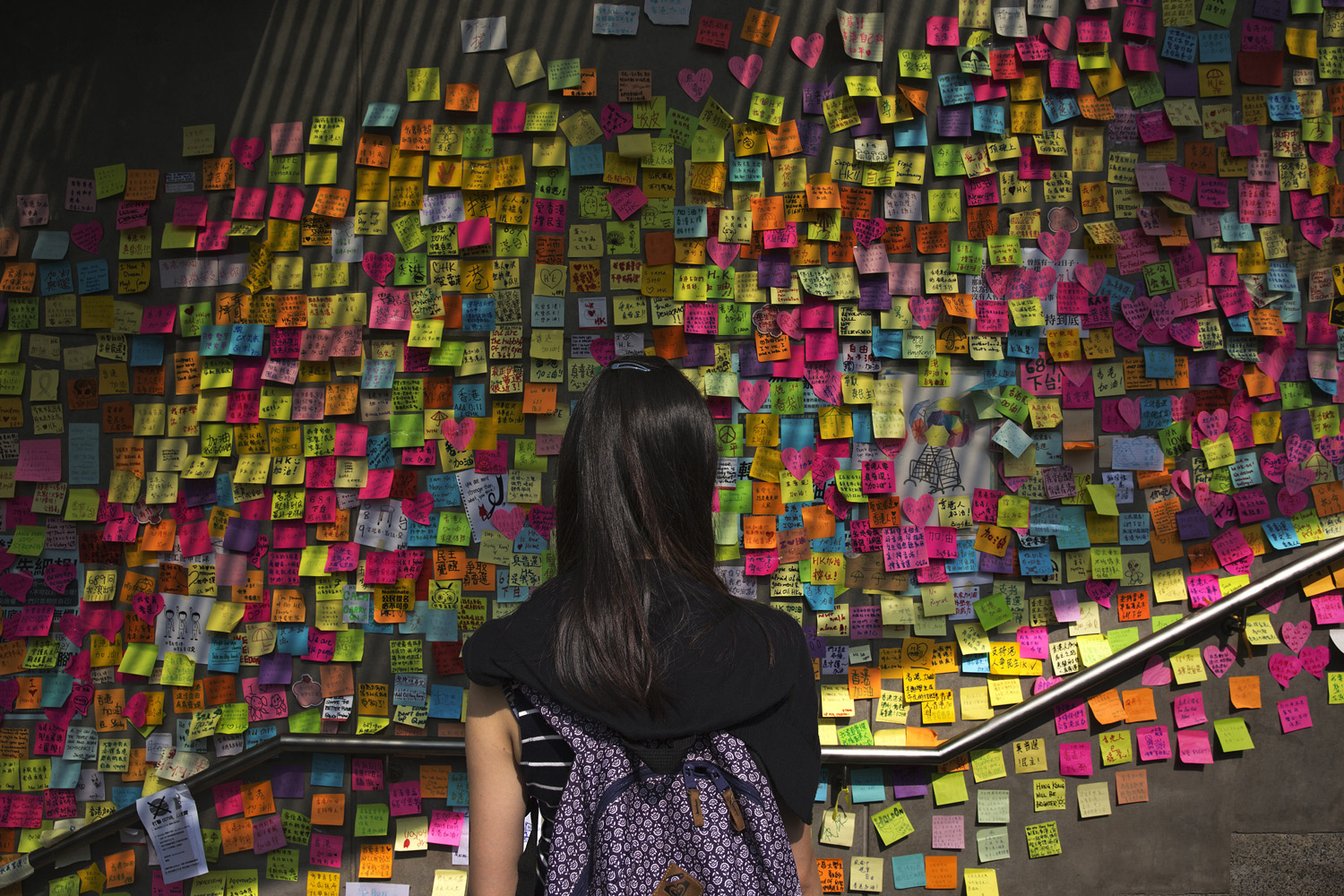
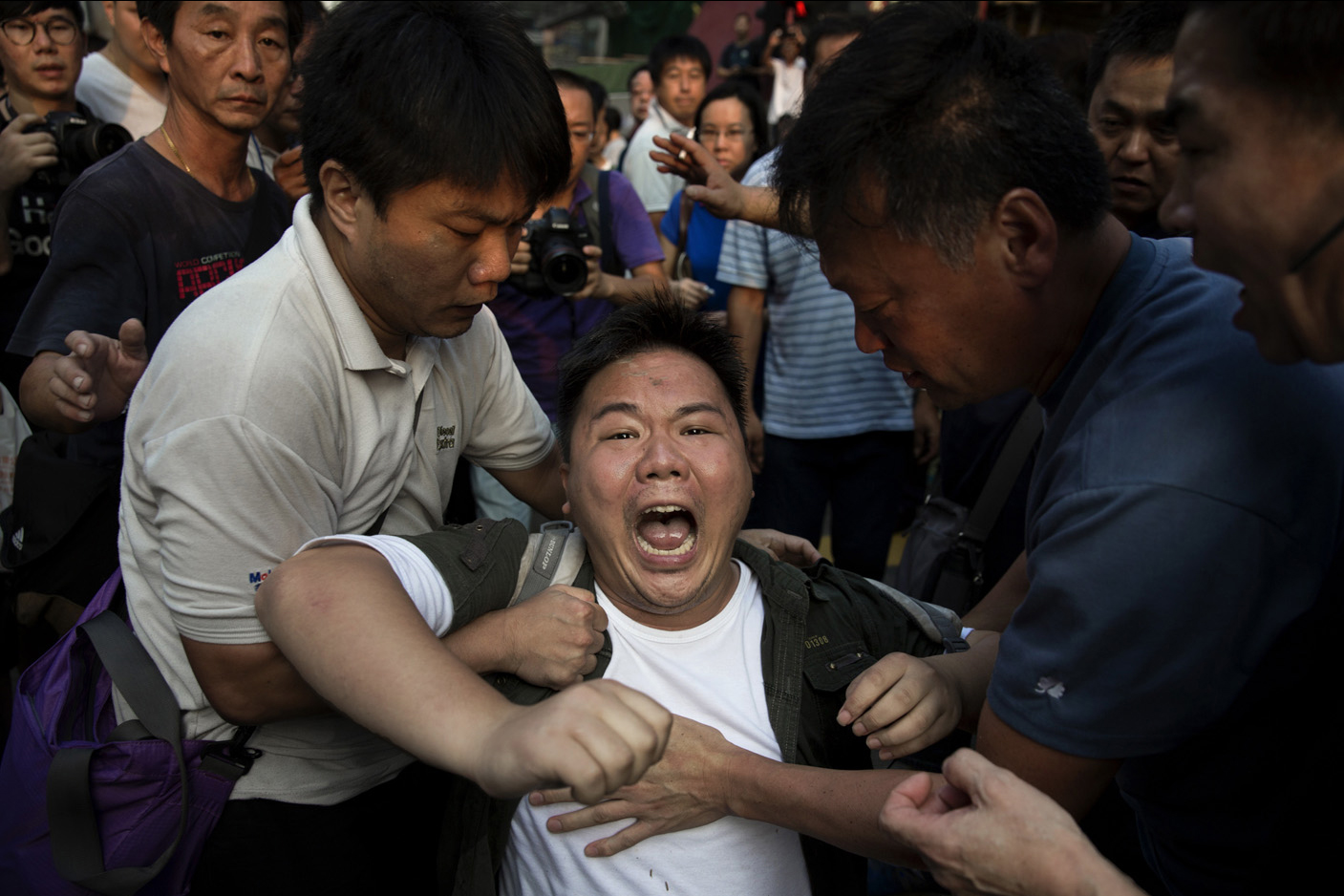
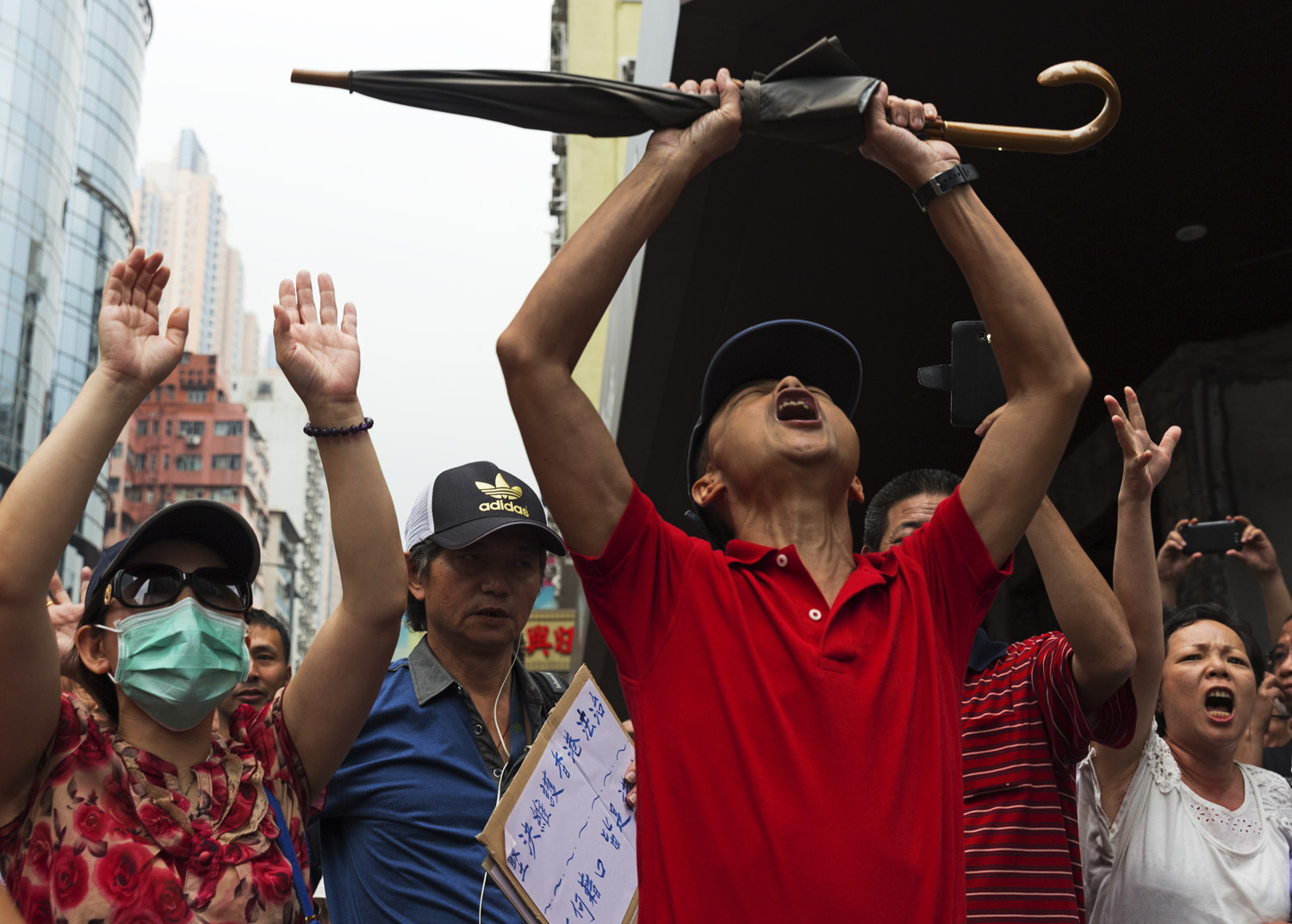
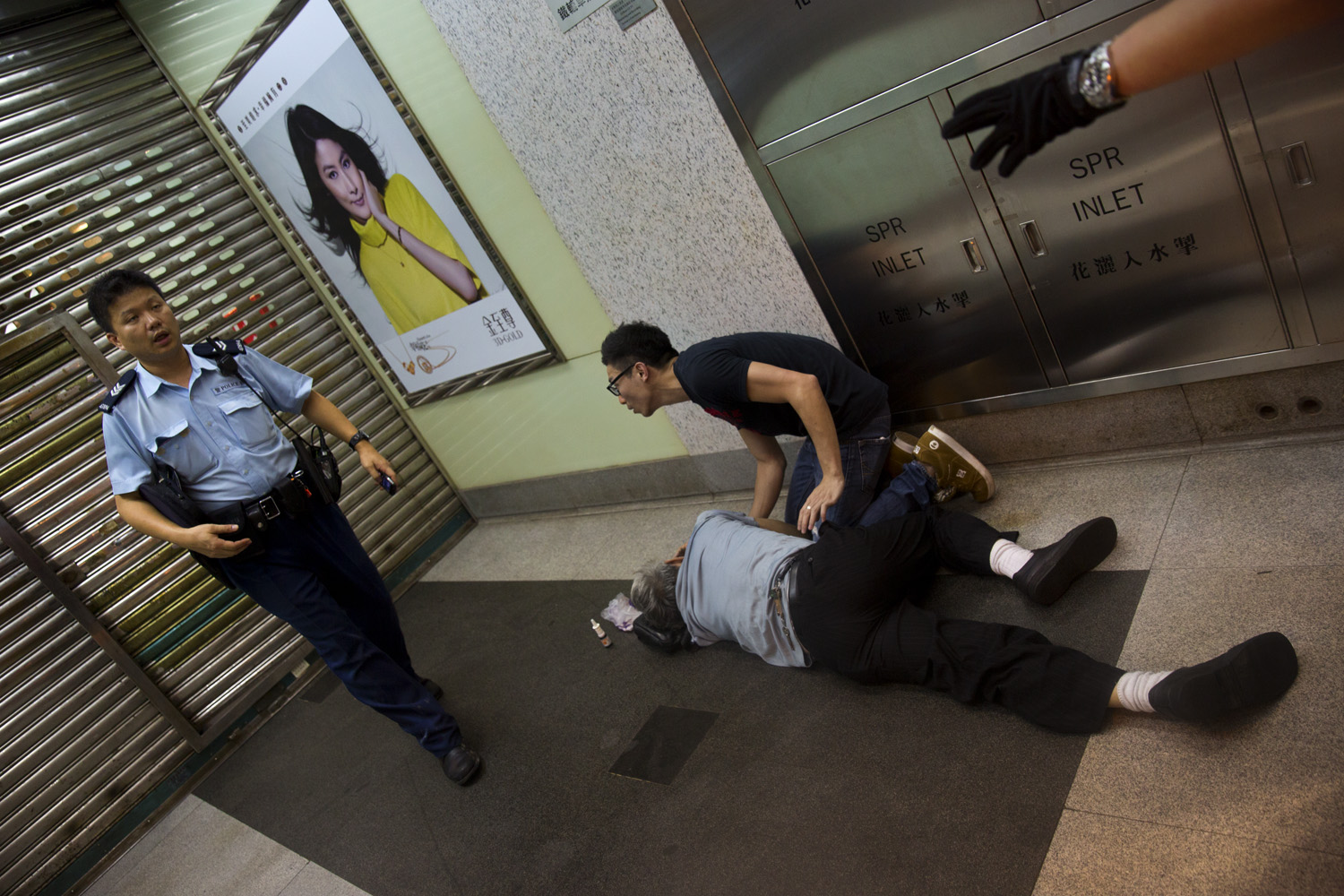
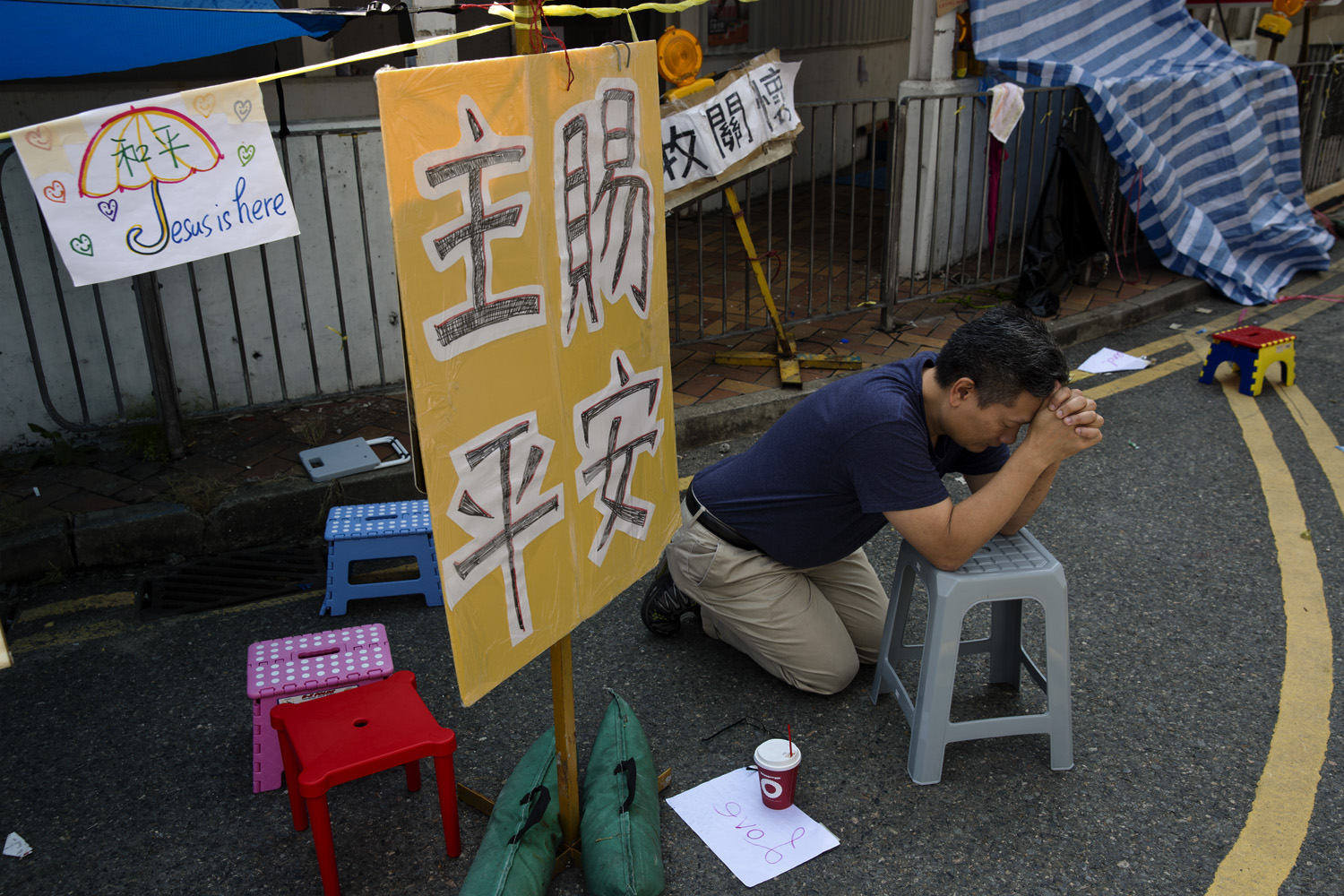

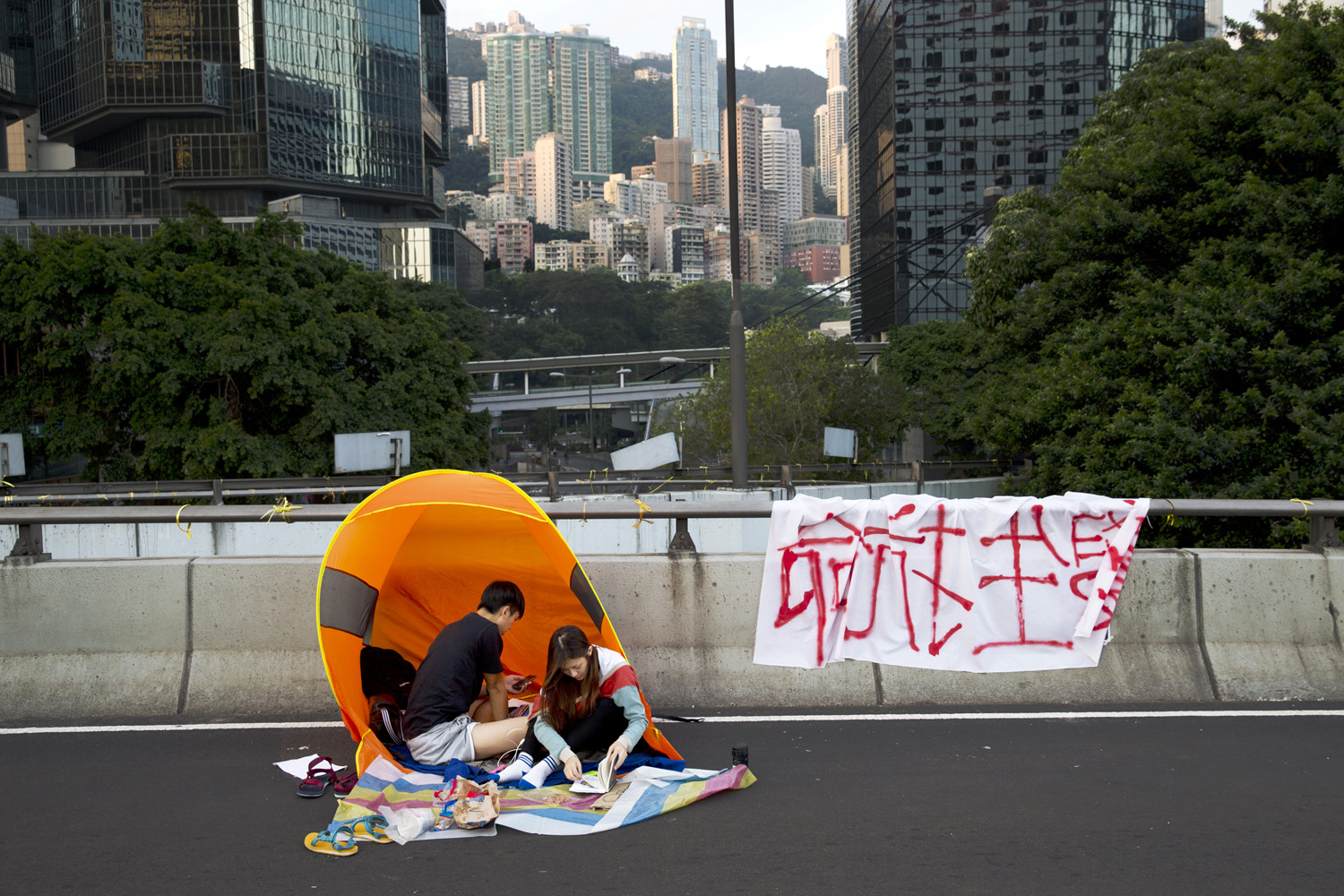
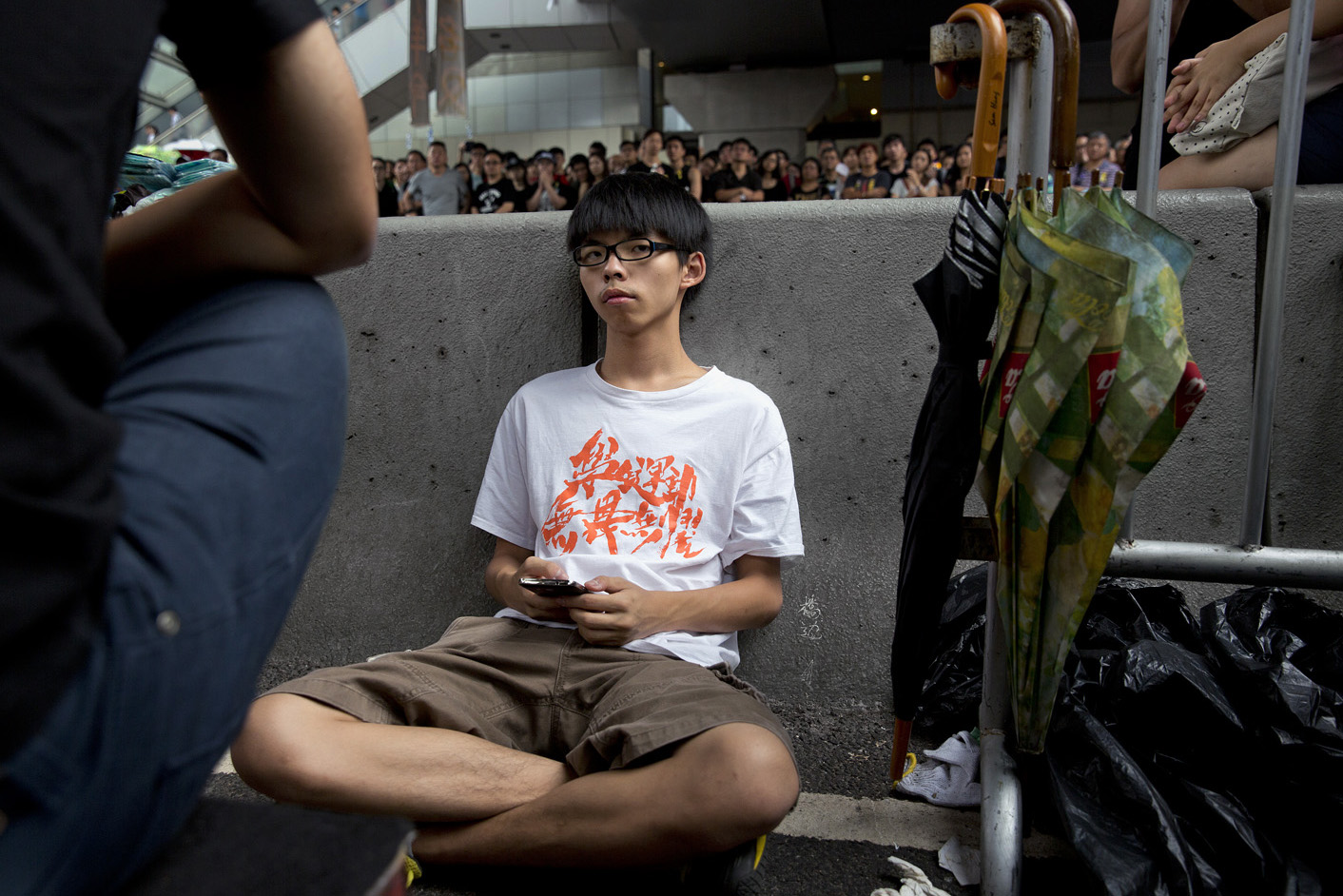


More Must-Reads From TIME
- The 100 Most Influential People of 2024
- How Far Trump Would Go
- Scenes From Pro-Palestinian Encampments Across U.S. Universities
- Saving Seconds Is Better Than Hours
- Why Your Breakfast Should Start with a Vegetable
- 6 Compliments That Land Every Time
- Welcome to the Golden Age of Ryan Gosling
- Want Weekly Recs on What to Watch, Read, and More? Sign Up for Worth Your Time
Write to Emily Rauhala at emily_rauhala@timeasia.com